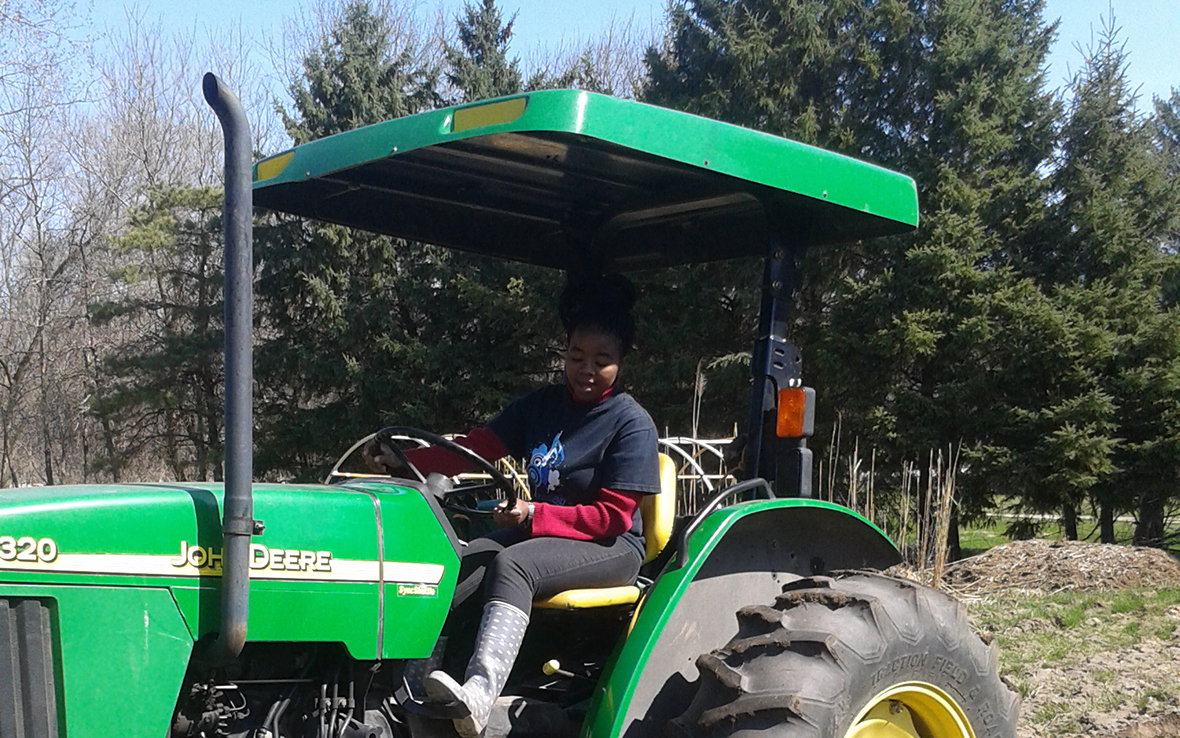It takes a lot of patience to let a carrot grow. And patience is exactly what Judith needed to let her own career path take root. Now she teaches New York City children how to explore the natural world and find out where their food comes from at City Growers, a nonprofit that empowers young people to envision a greener and healthier future. Learn more at citygrowers.org.
When did you know that you wanted to work in food?
I have always been a foodie, but back in high school I got the opportunity to really get my hands dirty and grow my own food. I took it lightly at first, thinking there was no way my carrots we're actually going to grow. Guess what? They did! In that moment I was so proud of myself. After that, life happened, and I dipped my feet in other projects, but there was always just a longing for that feeling I got the first time. Then Christine Welcher walked into my life and she was just a well of knowledge about everything! From choosing seeds to pickling, making jams and operating a tractor, to killing thistles and polishing my salesmanship. That experience and just watching her go out unafraid to fulfill her dreams inspired me to work at mine. That made that little ember I had in high school turn into a blazing fire. And now I can't see myself doing anything else.
How did you get your current good food job?
I found it through GFJ! I didn't know about GFJ until my former supervisor shared a link with me. I noticed that there were a lot of different opportunities that I was interested in, and I kept checking in every now and again until I landed this job.
How did your previous work or life experience prepare you for a good food job?
I possess a pretty diverse work background; from animal care and laboratory research to product promotion, marketing and organic farming. That, I believe, definitely put me in a unique position in that I could draw from those situations and experiences and apply them to how I relay information to the students that attend my workshops. I've spent a lot of my time interacting with people from all walks of life, and because a very big part of my job involves educating youth about food systems and promoting environmental awareness, that certainly went a long way in giving me the confidence I need as well as the ability to adapt to different groups. Also, just being in a position that allowed me to learn a lot helps me better answer the tough questions I may be faced with during each intensive.
What was the greatest obstacle you had to overcome in pursuing your Good Food Job dream?
First of all, finding a good fit is never easy. And that was probably my biggest obstacle, finding a job that worked well with what I had in mind for my personal development and balancing that out with one that was practical. There were moments I figured taking whatever fell on my lap and running with it would be my best bet, but I also had that voice in the back of my mind reminding me that not every hike is easy, and if you want to get to the top and enjoy the view you have to keep pushing. I would take a break, to clear my head and just breathe, then dive right back in.
Name one positive thing that a former employer taught you that you continue to appreciate?
My job is, for the most part, an independent one. So ordinarily I would be solo, however, every so often Mallory, my now former supervisor, would have these little check-in moments just to ensure I wasn't drowning or overwhelmed with adjusting and coping with the work. She would share tidbits of her experiences when she was in my position and how she dealt with them. It made me feel like she truly wanted me to succeed and not just in the way I handled the job but on a personal level as well. That's something I appreciate more than anything.
What can you identify as the greatest opportunities in food right now?
Definitely urban or rooftop farming. With the way cities are constantly expanding, the need for more locally sourced food only increases. The environmental benefits that are associated with green roofs would make such an immense impact that it's only logical to have more across big cities. From lowering energy costs to reducing CSO's and saving water, not only will it be beneficial to urban dwellers but also a new learning point for future generations on where our food comes from and it's importance.
If you could be compensated for your work with something other than money, what would it be?
Lifetime supply of red seedless grapes and watermelon!









